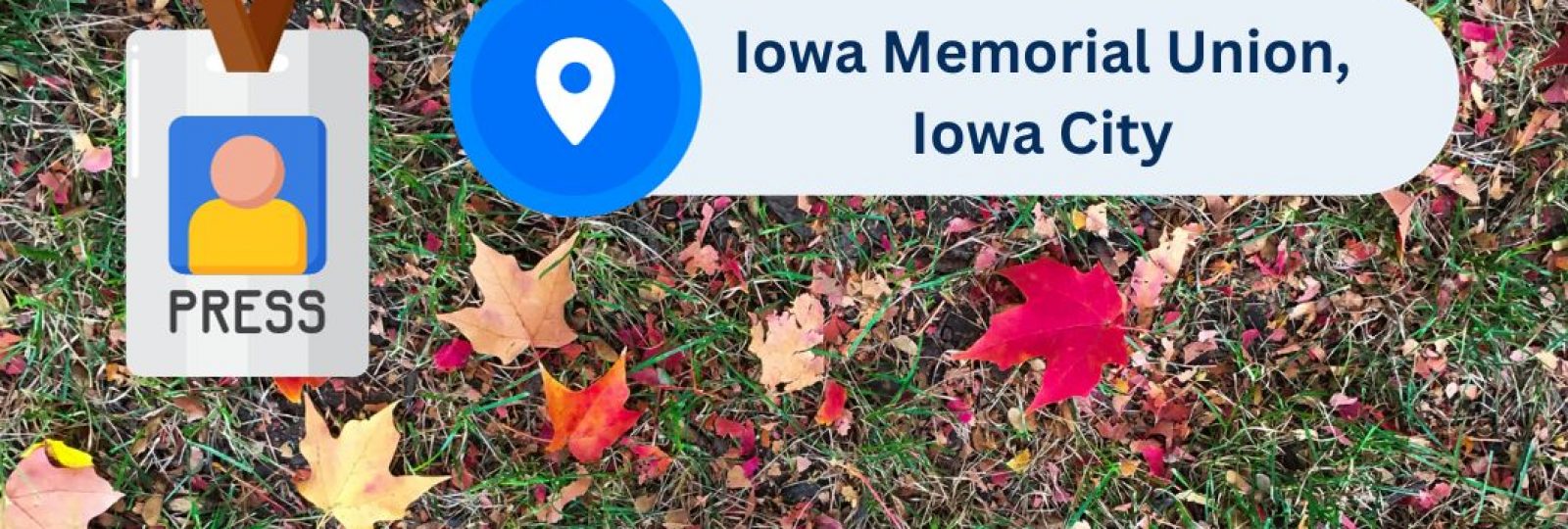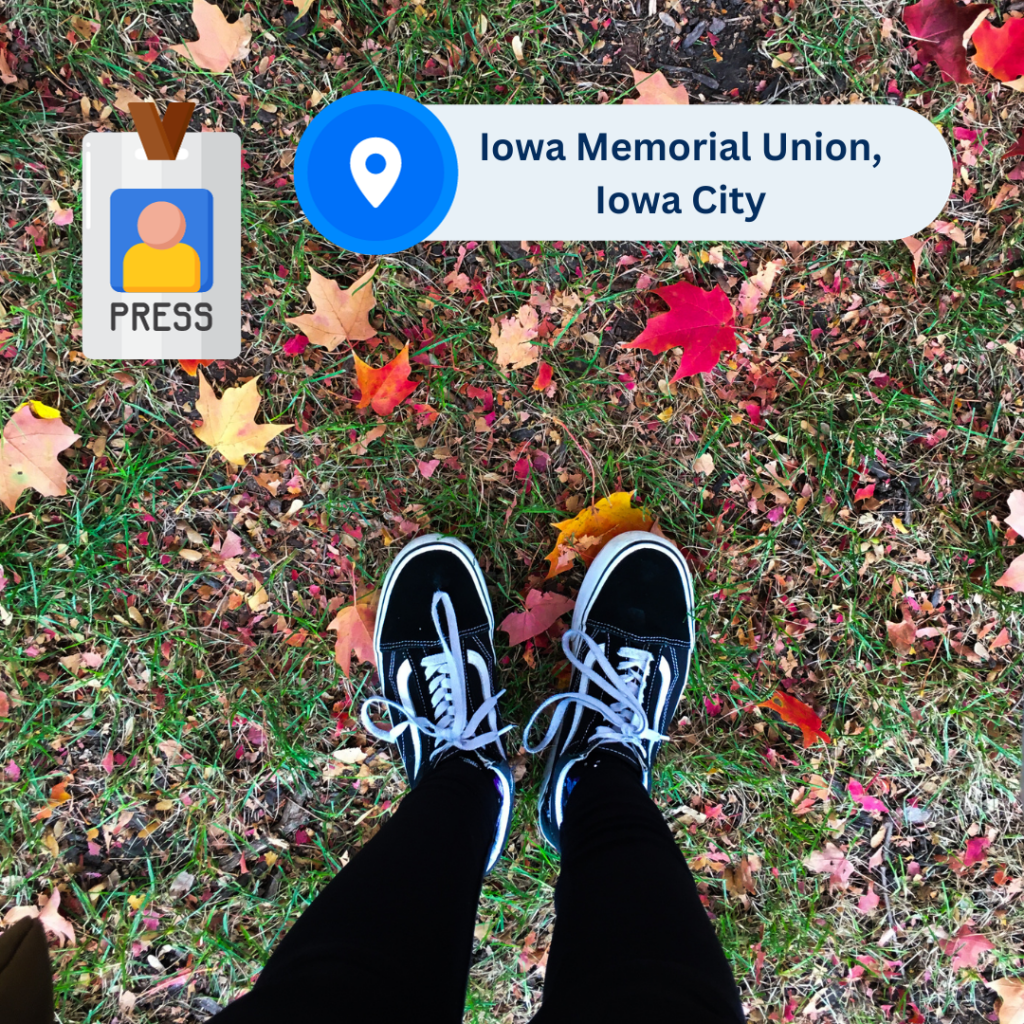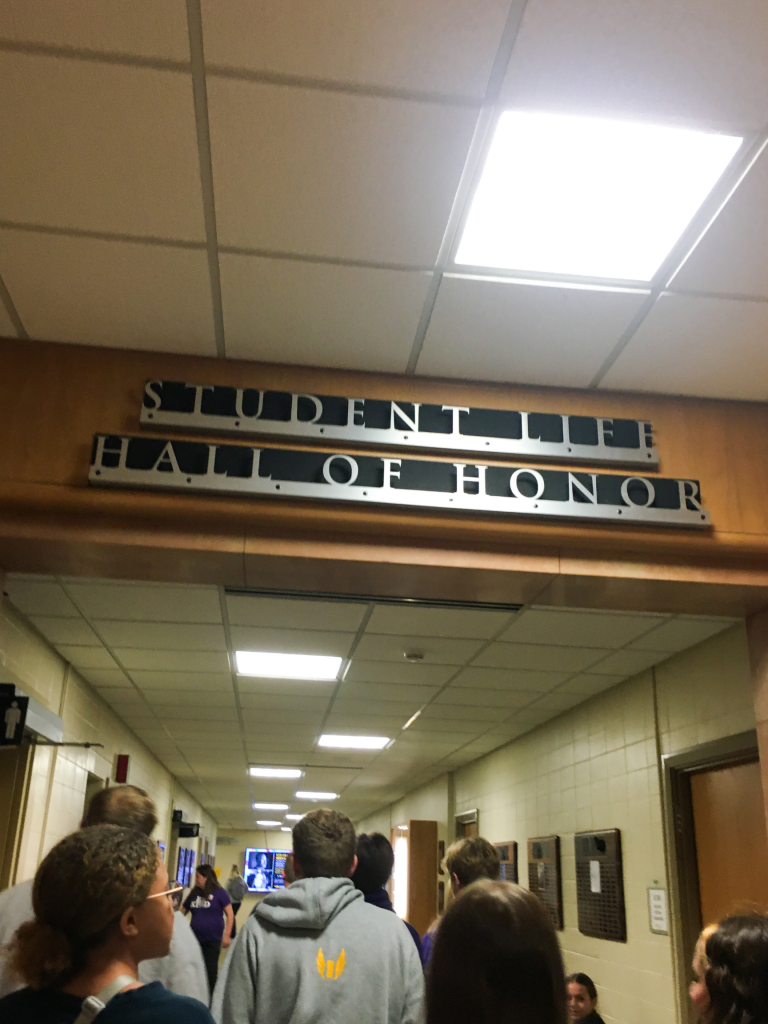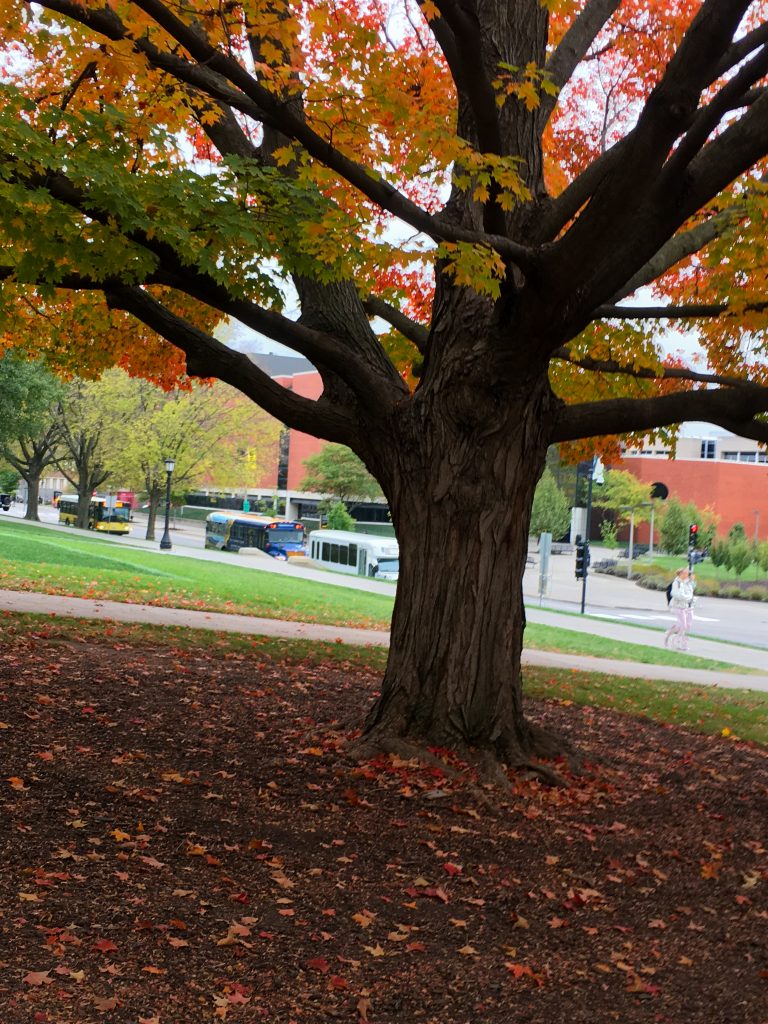The Arrowhead attends the IHSPA fall conference
Share this story


Stretching our legs after the eternal bus ride, we eyed our brick-laden surroundings. The sky was heather gray, and the atmosphere overflowed with promise. Shuffling into the Hubbard Commons, our group settled into the new space. Countless other students encircled us, pulling press passes over t-shirts representing their respective institutions. Rushing through the crowd of trendy tote bags and drowsy faces, our group found seats in the auditorium, which was studded with glistening chandeliers.
The Iowa High School Press Association (IHSPA) fall conference was held this year on October 19. Taking place at the Iowa Memorial Union in Iowa City, high school journalism students were invited to attend this event and learn from professors and professionals. This year, keynote speaker Brandee Britt told stories about her journey promoting women’s college basketball, showcasing student-athletes and their stories.
“Keep pushing, have belief, find the story,” Britt said. With a spirited send-off, each group went their separate ways in search of guidance. With many topics available, we had the opportunity to choose three breakout sessions to attend.
Breakout Sessions
For the first session, I chose “How to WOW Judges and Win Scholarships with Online Journalism Portfolios,” led by Jonathon Rogers, the Iowa City High Media Advisor. Rogers showcased examples of other students’ websites and portfolios, each one impressive and carefully curated. The lesson made me reflect on my own work. What have I done so far that is worthy to be on display?

For the next session, I rushed to “How to Be a Better Storyteller,” led by J.R. Ogden, Sports Editor for the Cedar Rapids Gazette. Students were so eager to attend this session that they sat on the floor when seating became scarce. That is, until a custodian told them not to crowd the walkway. Ogden spoke with personality and conviction, asking questions and enabling audience participation. “What are you passionate about? What do you know?” Ogden prompted us to answer these questions when deciding which stories to tell.
For the final session, I attended “Free Speech, Free Press, and New Voices Laws in High Schools,” led by Brett Johnson, a law student and Associate Professor. Johnson’s passion for law shone through his engaging presentation. Delving into the history of the First Amendment as it pertains to press and student journalism, Johnson guided the room through court cases that set up the foundation for free speech and rights for student journalists. He touched on the New Voices Laws that adjust the rules for students’ free speech in 17 states and enthusiastically answered many questions.
An Existential Lunch
After the sessions concluded, our groups went to lunch. We split up, some of us going off-campus to eat, and others heading for the food trucks. After getting tacos, my small group and I went exploring. We went to the ground floor and purchased souvenirs, we went outside to take in the scenery (and for photos) and we returned to the building’s common area.

I looked around at everyone, some groups were eating, others were talking amongst themselves, not a cell phone in sight (that I remember). I picked a direction and walked; I conducted a short interview with students from Iowa City West High School.
Taelim Yoon, a sophomore and West Side Story Intern spoke about her experience so far during her first year in publications. She said that publications is her favorite class so far and that the conference was a great opportunity to see people in the field working in journalism.
Senior Wesal Haroun, Yearbook Student Life Editor for West Side Story, said that she was first introduced to journalism during her junior high English class when the yearbook staff for Iowa City West High School came to visit. We briefly discussed our futures in journalism. “Entering journalism does sound kinda risky,” said Haroun. She expressed concern about the viability of journalism as a career, and that she will most likely pursue freelance journalism and another job to supplement the low pay and low number of opportunities for professional journalists.
I reflected on this. In a room full of glimmering potential, of people who are building the future with each endeavor they embark upon, it is hard to believe that the luminosity of our own destinies is not necessarily guaranteed. Professional journalism, photography, and writing careers have a general reputation of being less than lucrative for those pursuing them. That, on top of the cost of many years of schooling, often deters young people from entering the field. This results in the domination of the field by older elites, stifling the voices of young journalists who have the power to change the narrative and shape the country in the interest of future generations.
As I turned to go with my group, I asked myself, “What would the future look like if no one from my generation became a journalist?” And then: “What would my future look like if I never become a journalist?”
Reflection
During the Real-Time Strategy Planning set aside for each class, my group shared what we had learned from the breakout sessions, and made goals according to the insight we acquired. Reconvening after a break and reflecting on our collective takeaways from the event helped our group to refocus on our goals and set intentions for the future. At the end of the term, it was the refresher we needed.
The cloudy sky and crisp air enveloped us as we stepped onto the bus. Returning to school with a renewed sense of encouragement, carrying a myriad of lessons with us, we would reunite again, combining our newfound potential to make our work worth it.
